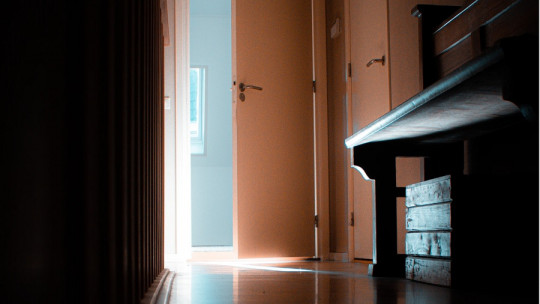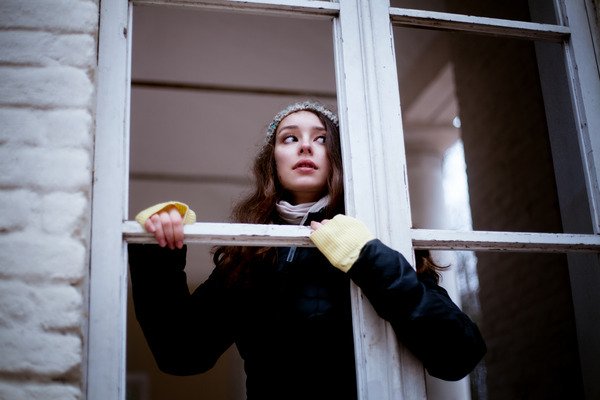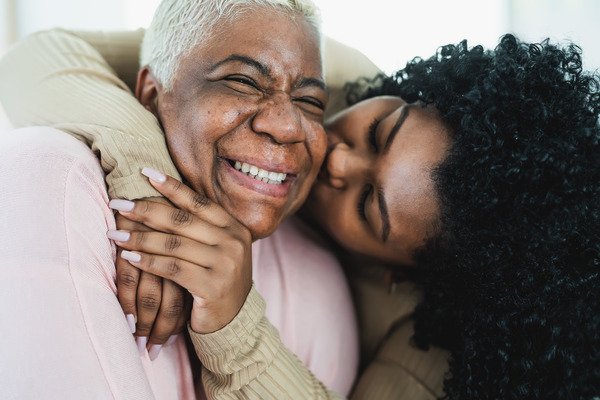Do you feel a phobia when leaving confinement? Are you afraid to leave the house? Maybe you are suffering from cabin syndrome. Discover what it is and how to solve this post-Coronavirus pathology.
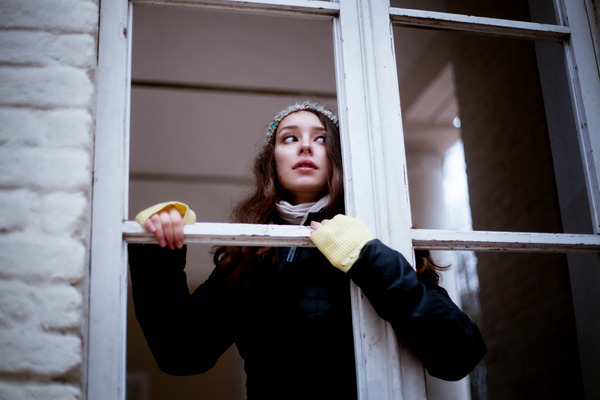
Many people, upon leaving confinement, have experienced a feeling of fear or overwhelm in the face of the current situation. In some cases, this has been able to evolve into a phobia of leaving the house and even the so-called cabin syndrome. In this way, this may be one of the psychological effects of confinement that we have currently experienced.
What is cabin syndrome?
If you are afraid of leaving the house and that fear is almost panic, you may be suffering from cabin syndrome. A person who is afraid to leave the house may be under the effects of this psychological disorder. He cabin syndrome It has a striking name that has become fashionable in relation to the Coronavirus crisis. This syndrome consists of the appearance of an intense fear of changing surroundings after a prolonged period of confinement and isolation. Its origin dates back to the beginning of the 20th century. It was during this time that the first symptoms were seen in hunters and gold seekers, who spent entire months isolated in their cabins. When they had to return to life in society they showed symptoms of distrust, overwhelm and fear. The minds of these hunters were accustomed to small and very controlled spaces, that is where they felt safe.
Cabin syndrome has been detected in people who have spent periods of confinement in hospitals, prisons or who have been kidnapped. Furthermore, this mental state appears in people who live in narrow, isolated or monotonous spaces and are accustomed to it. Cabin syndrome is a very recent term in psychology, but it has been studied in people who have lived deprived of their freedom as in patients who have spent long periods in hospital rooms.
How do I know I have cabin syndrome?
If you feel very overwhelmed when the time comes to start de-escalation, you may be suffering from cabin syndrome. Cabin Syndrome consists of fear of going outside combined with anxiety symptoms to avoid the dangers that may be found there. The person is afraid to leave their home after a long period of isolation. The most common symptoms that can occur when going out are panic, tachycardia, nervousness, anticipatory anxiety. We can mainly detect these effects in people who suffer from one of these types of psychological syndromes
- Lack of motivation
- Difficulty waking up
- Compulsive eating
- Frequent naps
- Lack of patience
- Fatigue
- Sadness or depression
- Difficult to focus
Although these may be some symptoms of this syndrome the reality is that these effects can also be shared by other psychological diseases.
Who has been affected by cabin syndrome?
He cabin syndrome It can affect everyone in the same way. Although it is one of the most common effects of confinement in this situation, there is a part of the population that may be more affected by it.
-
Children
This syndrome It can occur in the youngest children in a much more obvious way, at least in a significant group of children where all the content they have heard since the beginning of the quarantine is information about the virus. Furthermore, it is likely that COVID-19 itself and its consequences have seriously affected someone in the family. The children know that they cannot go out because it is dangerous for everyone. It is not so easy for children to understand the changes in the instructions of their adults, and children are also aware that there is still danger due to all the precautions that must be taken to leave their home safely.
-
Seniors
The elderly are also very exposed to developing the syndrome. They prefer security to any possible risk that makes them feel vulnerable.
-
Hypochondriacs and people with social anxiety
People who already had a predisposition to socially isolate themselves before of confinement They are another of the risk groups. This fear of leaving the house can also be related to other pathologies such as hypochondriacal disorder.
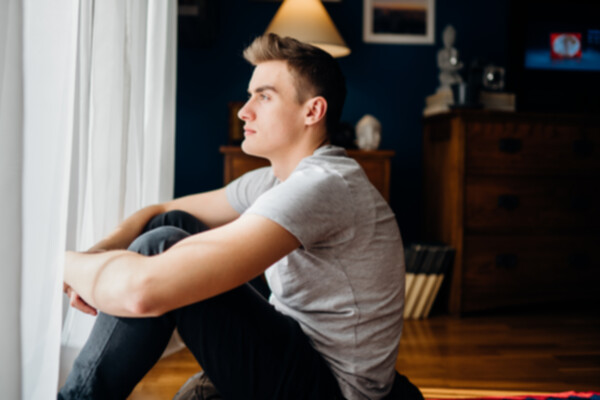
Why does cabin syndrome happen?
Its original name is “cabin fever” and began to be mentioned at the beginning of the 20th century to describe a type of mental state that is also known as “prairie madness” either “mountain madness”.
Dr. Paul Rosenblatt, professor emeritus of Family Social Science at the University of Minnesota in the United States, explained to the BBC that he conducted a study in the 1980s with residents of Minnesota, a rural state with very harsh winters, to find out how They related the concept to their experiences. Among the people who I suffered from the syndrome, there is no unanimity about the specific symptoms or in what order they appear, according to Rosenblatt. The most common are presenting a feeling of restlessness, feeling caged, depression, irritability, loneliness, restlessness, anxiety, impatience, boredom and frustration.
To the get out of confinement, in the same way that was demonstrated with the inhabitants of the town, many people were able to experience these sensations. In this way, to avoid the psychological effects of confinement, foresight is essential. Symptoms may be present and not be valued because they are mild at first. Furthermore, if there is no urgent need to go out, they end up avoiding doing so. Each avoidance increases worry. It is better to leave progressively despite the discomfort or fear for short periods of time and get used to the new situation and thus be able to normalize the situation little by little. Any fear must be faced as soon as possible so that it does not become greater.
Can everyone suffer from cabin syndrome?
It can happen to people who were not susceptible to psychological disorders. The situation this first quarter of 2020 has been so surreal that people who may not have had psychological disorders in their lives may be candidates for suffering. syndromes postcoronavirus like the one in La Cabaña.
Faced with so many possible threats, people have felt and feel very vulnerable. So much time isolated has caused adults and children to become unaccustomed to social contact as we previously understood it. There are situations like isolation and lockdown that have become normalized and now many people feel afraid and the possible risk is not worth it compared to the benefit, at the end of the day there is still a high risk of contagion and complications.
How to overcome cabin syndrome?
To the get out of confinement It is normal that we are left with some consequences of the situation full of uncertainty that we have just experienced. Although cabin syndrome may be one of the most visible disorders, the reality is that there are many more psychological effects of the pandemic than we could imagine. Despite this, we can deal with all of them through the following tips.
1. Understand your case
Usually, people are very confused without clearly knowing what is happening to them, what is this syndrome and how it originated. When you feel fear or anxiety or excessive worry, assess what is happening in your environment and what may be the origin of your symptoms. Then always consult with a health professional who can give you important information for you and that you do not know the nomenclature. If you cannot physically access one, contact online. Always look for solutions to minimize your discomfort. The goal regarding symptoms is to shorten the period of suffering and return to your normal life quickly and well.
2. Rationalize the symptoms
If you already know what is happening to you, you should inform yourself properly about syndrome, its symptoms and possible solutions. You have to rationalize the symptoms, especially the panic and agoraphobia that you are suffering from.
3. Practice relaxation and breathing techniques
Relaxation and breathing are two common and effective techniques you can use to cope. the symptoms However, they do not completely resolve the fear, but they will help you expose yourself to the situation with less discomfort.
4. Detect disabling beliefs
You must be able to find the beliefs about the feared situation, questioning them, learning to change unreasonable thoughts for more collaborative ones.
5. Gradually expose yourself to going out
It is necessary that you gradually expose yourself to the feared symptoms, such as anxiety, agitation, altered breathing… so that you gradually lose your fear of them. If you think about exposing yourself to something feared, it is normal that it seems complex, and it is not just a matter of getting closer to what is feared and staying there constantly. If you are afraid of a plane, the solution will not be to ride on a plane many times. It must be done progressively, following a previously planned pattern, to carry out an adequate exposure and ensure that the fear decrease little by little.
6. Have courage
You will always have a certain degree of uncertainty and discomfort when facing a situation like the current one. You have to develop courage to gradually face the symptoms and this will give you the key to resolving the problem. cabin syndrome
7. Prevention is cure. Go to a professional
If you need help to face the current situation, you should not hesitate to contact a professional. Timely intervention can prevent the situation from becoming chronic and helps shorten the period of discomfort.
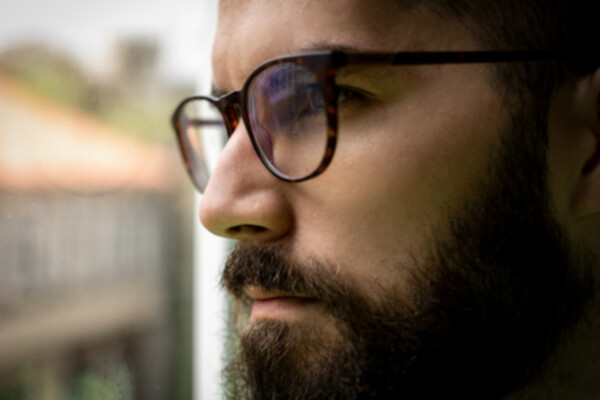
Is it a psychiatric disorder?
Noel cabin syndrome It is not a pathology described in psychiatry books, it is a nomenclature to define what some people experience who, after spending a long time at home, feel afraid to go out
It talks about cabin syndrome to define the set of symptoms you suffer when you feel panic about leaving the house and facing an environment where situations may appear that are beyond your control. You can experience alterations such as anxiety, palpitations, that a person experiences when going outside after having spent time in a closed space. It is not considered, however, a disorder. The syndrome can evolve and ultimately lead to agoraphobia, that is, a fear of being in open spaces.
Differences between agoraphobia and cabin syndrome
Although agoraphobia is very similar to this syndrome, the reality is that it is not the same disorder.
Agoraphobia is a type of anxiety disorder in which you are afraid of places or situations that could cause you to panic and make you feel trapped, so you avoid these types of places or situations. You fear a real or anticipated situation, such as using public transportation, being in open or closed spaces, standing in line, or being in a crowd.
The anxiety of agoraphobia results from the fear that there will be no means of escape or help available if anxiety intensifies. Most people who suffer from agoraphobia suffer from it after having one or more panic attacks, which makes them worry about having an attack again, so they avoid places where it can happen again.
Thus, cabin syndrome is not agoraphobia, that is fear of going out on the street or fear of open spaces or some closed spaces. And it is not a new disorder either. What especially differentiates cabin syndrome from agoraphobia is the intensity and severity of the symptoms as well as the causes that trigger one or the other. A syndrome is a set of symptoms that usually group together but do not yet form a disorder. Just as agoraphobia is a disorder. A disorder is defined as a set of syndromes that meet the characteristics of being together in an established time and order. But it is true that the symptoms are very similar.
A symptom is a set of subjective elements, signals perceived only by the person.
The symptoms of the cabin syndrome are
- Drowsiness.
- Impatience
- Loneliness
- irritability
- Sadness or depression.
- Difficult to focus.
- Lack of patience.
- Food cravings.
- Decreased motivation.
- Difficulty waking up.
- Frequent naps.
- Despair.
- Fear of going out on the street.
The symptoms of agoraphobia are
- Feeling afraid of being alone.
- Feeling afraid of being in places where escape could be difficult.
- Feeling afraid of losing control in a public place.
- Dependence on others.
- Feelings of separation or distancing from others.
- Feelings of hopelessness.
- Fear of crowds or waiting in line.-
- Fear of closed spaces, such as cinemas, elevators or small stores.-
- Fear of open spaces, such as busy streets, parking lots, bridges or trains.- Using public transportation.-
- Significant fear or distress in work, social situations.
Cabin syndrome and agoraphobia are fundamentally different in that agoraphobics may have a fear of open and closed spaces and those with cabin syndrome They do not have a fear of open or closed spaces but rather a fear of leaving the house after having spent time confined and accustomed to a quiet and safe space. They are similar in the fear and anxiety that appear at the thought of going outside.
How long can it take until my symptoms disappear?
It may last a short time and only affect the first outings, or it may last a long time and affect the entire de-escalation period, remaining somehow incorporated into a part of the psyche of the person who presents it.
It will be little if it is detected in time, if you intervene before the symptoms worsen, then it is easy to overcome it. Simply with a progressive pattern of exposure to the discomfort that appears in front of the exits while trying to normalize the situation. Another guideline is to leave little by little, progressively, while increasing the periods in which you remain outside the safe place. If detected late, when cabin syndrome symptoms have been amplified will continue for a longer period of time. The real problem appears when you listen to the symptoms and let yourself be carried away by them. At that moment the symptoms amplify and the situation can become a real problem of agoraphobia.
It is true that the trigger can be the isolation but it especially depends on its conditions such as size of the house, type of lighting, type of monotonous routines or lack of routine, lack of motivation, type of weather. A higher incidence has also been found in people confined at home with small children, due to illness or being in charge of a sick or disabled person.
Will I be able to travel or will I always have this fear?
It can affect a lot or a little and it depends on each person. There are many people who, despite the syndrome They will continue to want to travel because their motivation to discover new places compensates for their discomfort. We can observe this with the simile of the phobia of flying, there are many people with a fear of flying who continue traveling because they prefer to endure their fear rather than stop traveling. However, there is another group of people who will allow themselves to be carried away by fear and decide to remain in a safe environment.
He cabin syndrome Postcovid-19 is destined to disappear in most people after de-escalation. It is best to detect it and intervene when the symptoms are still mild.
Add that at this time where the particular circumstances of each region or country regarding the evolution of COVID-19 are not well known, an impact on travel schedules can be observed. Cabin syndrome affects everything that has to do with leaving home in a new environment, if your region or country seems unsafe to you but the rest do. Travel may be amplified in the event that you travel to places that are more advanced than the region or country itself in the process of infections and return to normality, as would be the case of the Canary Islands.
Any generator of anxiety or stress can increase any fear that existed or was latent. The fear of flying is a fear that can appear at any time in human beings. It is possible that cabin syndrome can affect some people by developing or increasing their fear of flying. As the outputs normalize, it is most likely that cabin syndrome disappear, especially if the risk of contagion by COVID-19 decreases.
Can this syndrome affect people who suffer from it in the long term?
The person who suffers or has suffered from cabin syndrome will have a dent in their memory. These people are likely to pose risks that they had not considered until now. However, the future regarding cabin syndrome It’s encouraging. You will see how you will have an increased desire to travel when the quarantine is lifted globally.
How can family members help overcome this syndrome?
The person who presents the cabin syndrome He usually depends on other people to go out, family, friends, and it is possible that they do not know very well how he acts.
It is important to accompany him, listen and encourage him, trying to avoid psychological pressure and avoiding provoking reactions that worsen the behavior. It is easy for family members to inadvertently enhance and encourage the syndrome if they choose to put pressure on the person to force them out. The person suffering from the disorder must receive unconditional support and acceptance from family members. It is important to reinforce the family’s every achievement that the affected person achieves and to demonstrate confidence in his or her abilities to overcome the situations he must face.

